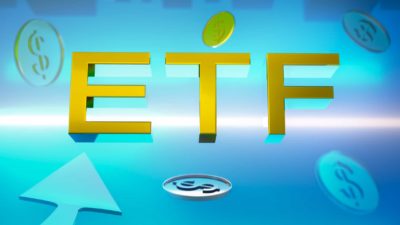The Ethereum (CRYPTO: ETH) price has come charging back from yesterday's lows of US$943. At that price, the world's number two token by market cap had shed more than 35% in just one week.
Having gained 13% since this time yesterday to trade at US$1,084, the Ethereum price still remains down 22% over the past seven days. And it's down a painful 78% from its 16 November record high.
So, what's going on?
Why is the Ethereum price falling sharply?
Ethereum has come under pressure, along with the vast majority of cryptos, as investors adjust their weightings of risk assets amid fast-rising interest rates.
But it's not just rising rates battering cryptos and the Ethereum price.
The spectacular failure of the TerraUSD stablecoin and its supporting token Luna last month shook confidence in the entire industry. And last week news emerged that crypto lender Celsius, which offered exceptionally high yields, might not be able to meet its obligations. Celsius has halted withdrawals.
Crypto sharks circle the weakest, leveraged hands
If you've invested in Ethereum, you likely have little to fear from crypto sharks, though their actions may in the medium term depress the broader market and the Ethereum price.
Shark traders, as they're known, use their own computer networks to search blockchains for traders who are holding highly-leveraged and potentially weak positions.
According to Omakase, an anonymous contributor to the Sushi decentralised exchange (as quoted by Bloomberg):
In a downtrend environment, where yields are harder to access, what we are going to see is some actors utilise some more aggressive strategies, and that may not be necessarily good for the community… The environment has become more player versus player…
Most protocols offer a 10-15% liquidation fee. Triggering enough liquidations would cause a liquidation cascade where a motivated actor could simply hold a short position in order to profit for the subsequent secondary decrease.
If you bought Ethereum outright, the sharks won't be circling your holdings.
Instead, they're looking for leveraged traders in the decentralised finance (DeFi) space. That's where people can borrow and lend cryptos from other traders without going through traditional banks.
The collateral used is other cryptos, like Ethereum. That means if the Ethereum price falls, so too does the value of their collateral. Should their collateral value fall enough, this triggers a liquidation, for which the successful shark trader receives a fee.
Blockchain analytics firm Nansen said that similar shark trading behaviour may have "contributed to the collapse of the TerraUSD stablecoin".
However, Nathan Worsley, who searches for crypto traders on the verge of liquidation to earn the commission for liquidating them, defends the practice.
According to Worsley (courtesy of Bloomberg):
I would push back on classifying this as an attack. The reason is because without liquidations, you can't have a lending market. So even though no one enjoys being liquidated, it's essential that people do get liquidated in order to make the market and protect the protocol from insolvency.








